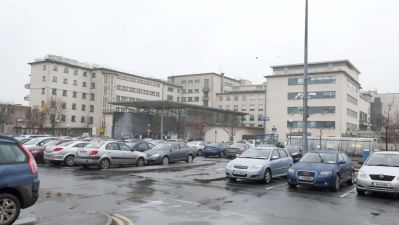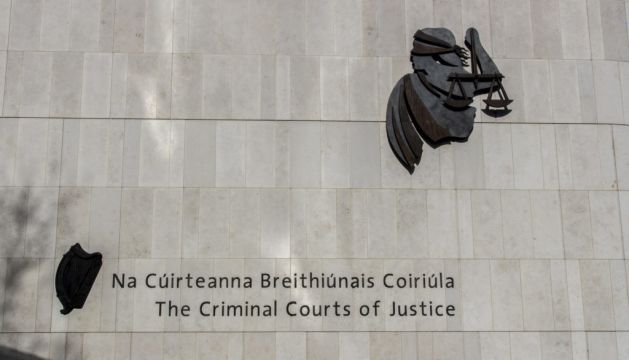A murder accused husband told a consultant psychiatrist who assessed him prior to his wife's body being found that he "was on a mission from God to kill" her and had no choice.
Consultant psychiatrist Dr Camilla Curtis from Mayo Mental Health Services told the jury that James Kilroy presented with acute psychotic symptoms and was potentially a significant risk to himself and others. However, she decided he could not be detained in the adult mental health unit in Castlebar as it was a low or non-secure environment.
The accused also told the psychiatrist that his wife "wasn't part of the plan" and said he had stabbed her in the throat using a kitchen knife.
Mr Kilroy (50), has pleaded not guilty by reason of insanity to murdering occupational therapist Ms Valerie French Kilroy (41) at their rural home at Kilbree Lower, Westport, Co Mayo, between June 13th, 2019 and June 14th, 2019.

The jury heard on Thursday that after he was brought to Mayo University Hospital, Mr Kilroy asked to speak to gardaí to make a confession and said: "I killed my wife". The trial heard that, up until this point, gardaí had no suspicion of Mr Kilroy having done anything criminal.
Gardai were dispatched to the accused's home at Kilbree Lower at 3pm on June 14, where they discovered the body of Ms French Kilroy in a green campervan parked facing a wall in a shed.
Dr Ann Shortt, who worked in the accident and emergency department at Mayo University Hospital, today told Dean Kelly SC, prosecuting, that she examined Mr Kilroy on the afternoon of June 14th after gardaí found him running naked in a field outside Westport and behaving strangely.
The witness assessed Mr Kilroy to see whether there was a need for involuntary admission to a mental health unit. She said there were cuts and scrapes all over his body and concerns about his mental health.
When she asked the accused why he had been running naked around a field, she said Mr Kilroy remained silent or had answered bizarrely. Dr Shortt said the accused suggested his blood sugar might be low, which she found to be a bizarre explanation for such conduct.
Dr Shortt told a psychiatrist that in her opinion, the accused was suffering from an acute psychotic episode.
Consultant psychiatrist Dr Camilla Curtis, who was working in the Adult Mental Health Unit at Mayo University Hospital, said she carried out an assessment on Mr Kilroy on the same day.
The witness said when she arrived to speak to the accused he was telling her colleagues that from his perspective his wife had stabbed him in the back. Dr Curtis asked the accused to sit forward so she could look at his back but didn't see any signs of a stab wound.
Dr Curtis asked the accused whether he felt in control of his mind and he said he did. He said he believed his wife was working against him and trying to harm him.
'Mission'
Mr Kilroy told Dr Curtis that he had become more religious as of late. Asked what he meant by this, the accused said he was on a mission from God to kill his wife. When asked by the doctor whether he had to fulfil the mission, the accused said he did not question God's commands. He told the psychiatrist he did not remember whether he had carried out the command.
Dr Curtis said she became concerned at this point whether some harm had come to his wife and asked him where she might be.
He said that Valerie's body was in a Ford van in the shed, that "it led to worse killing my wife" and that he had stabbed her in the throat using a kitchen knife. The accused said he had left his wife in the van, that she was turning into a zombie and he felt the dead were going to get him.
The accused told the psychiatrist that Vladimir Putin wanted to shoot him and that he didn't know why he might have an interest in him.
He said he had smoked cannabis 10 days ago and used to smoke it every two days as a way of self-medicating to keep his anxiety levels down. When asked how long he had been smoking cannabis, Mr Kilroy said initially one or two years but then said for the last 19 years.
Asked whether he had been treated for anxiety by any medication, the accused said he was prescribed the antipsychotic medication Risperidone in 2001 by Navan Mental Health Services. The witness said he wasn't able to say how long he stayed on it or why he had stopped using the medication. He also said he had used ecstasy in 1994.
Mr Kilroy told the psychiatrist that he saw shapes, zombies and the dead but did not hear any voices. He said he had felt depressed for the previous ten days but had no specific thoughts about harming himself.
Asked about killing Valerie, Mr Kilroy said he had no choice as it was God's mission.
The witness told Mr Kelly that the accused displayed no evidence of acute depression or elation in mood and wasn't able to clarify whether he had harmed anyone previously. She said he described grandiose and religious delusions and had acknowledged seeing visual hallucinations.
She agreed with counsel that the accused presented with acute psychotic symptoms and was potentially a significant risk to himself and others. She concluded that he could not be detained in the adult mental health unit and discharged him.

Under cross-examination, Dr Curtis agreed with Conor McKenna BL, defending, that her decision not to detain his client was on the basis that he could not be treated in a low or non-secure environment such as the mental health unit in Castlebar. She also agreed the accused had displayed definite formal thought disorder.
In re-examination, Dr Curtis agreed with Mr Kelly that psychotic symptoms can have a lot of different causes and are not indicative of a medical disorder. She said these symptoms can arise from cannabis use or for other physical health reasons.
In his opening address, Dean Kelly SC, prosecuting, told the jury that while Mr Kilroy admits to killing Ms French Kilroy four years ago, psychiatric testimony from expert witnesses will be central to their verdict in the case.
The trial continues on Monday in front of Mr Justice Paul McDermott and a jury of seven women and five men.







